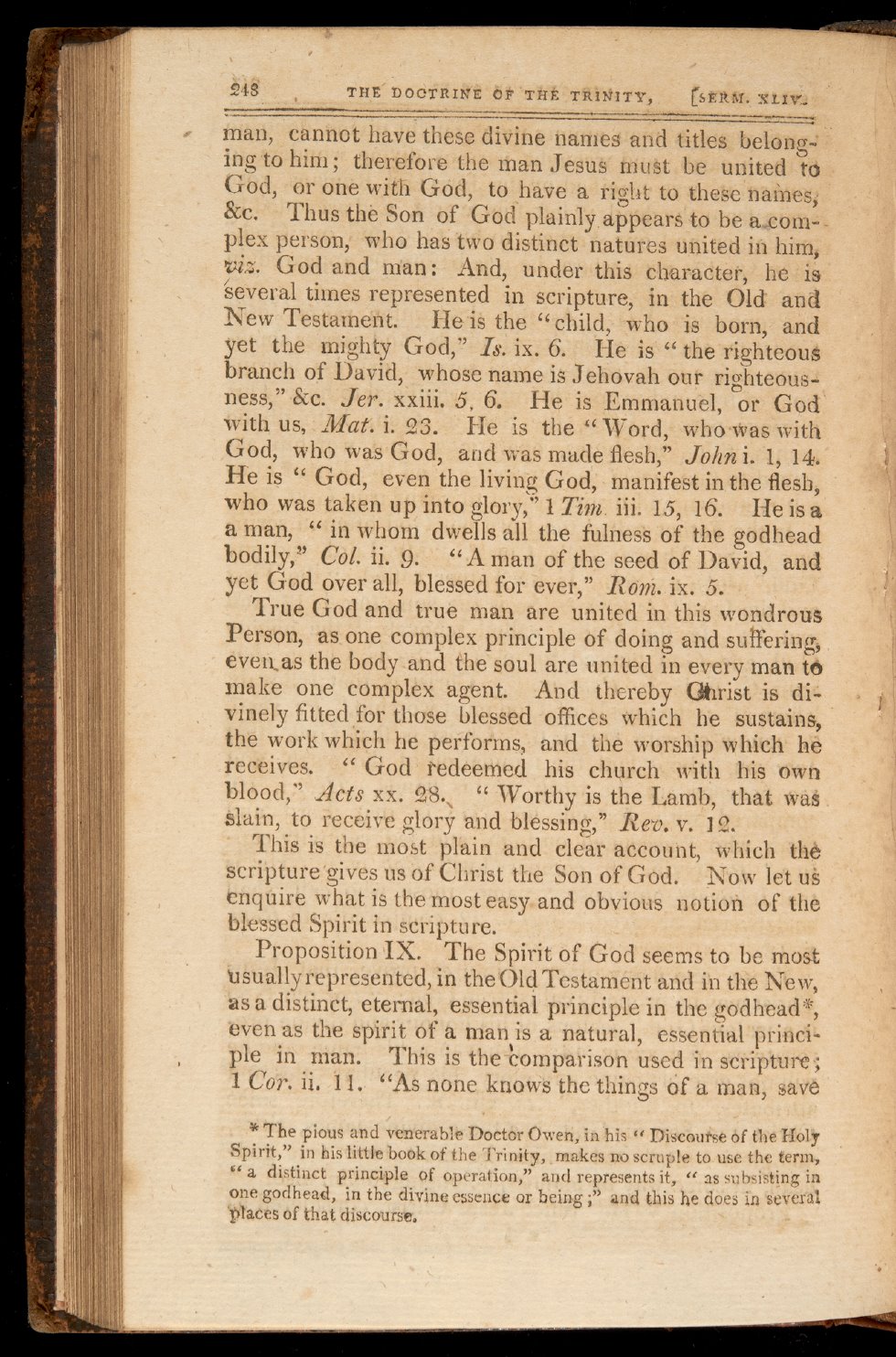

243
THE DOCTRINE
0$
THE
TRIt4ITY,
1SEILb1..YLIV_
man,
cannot
have these divine
names and titles belong-
ing
to
him; therefore
the man
Jesus
must
be
united
tò
God,
or one
with
Gòd,
to have
a
right
to
these
narnes
&c.
Thus
the
Son
of God plainly appears
to
be
a..com--
plex person,
who
has two
distinct natures united
in him,
viz.
God and
man
:
And,
under
this
character,
he
is
'several
times
represented
in
scripture,
in the
Old and
New
Testament.
He
is
the
"child,
who
is
born, and
yet the
mighty
God,"
h.
ix.
6.
He
is
"
the
righteous
branch of David,
whose
name
is
Jehovah
our righteous-
ness,"
&c.
Jer.
xxiii. 5,
6.
He
is
Emmanuel, or
God
with
us,
Mat.
i.
23.
He
is
the
"Word,
who was with
God,
who was
God,
and was made
flesh,"
John
i.
1,
14.
He
is
"
God,
even
the living God, manifest
in
the
flesh,
who
was
taken up into
glory,"
1
Tim.
iii.
15, 16.
He
is
a
a
man,
"
in whom dwells all the fulness
of
the
godhead
bodily,"
Col.
ii.
9.
"A
man
of
the
seed
of David, and
yet God
over
all,
blessed
for
ever," Rorn.
ix.
5.
True
God and true
man
are united
in
this
wondrous
Person,
as
one
complex principle
of
doing and
sutfering,
even.as the
body
and
the soul
are united
in every
man
tb
make
one complex agent.
And thereby
Otirist
is
vinely fitted
for those blessed
offices
which he sustains,
the
work which he performs,
and
the worship which he
receives.
"
God
redeemed
his
church
with his own
blood," Acts
xx.
gí3.
" Worthy
is
the Lamb,
that
was
Slain,
to receive glory
and
blessing,"
Rev.
v. 12.
This
is
the most
plain and clear account,
which
the
scripture'
gives
us
Of
Christ
the
Son
of
God. Now let
us
enquire what
is
the most
easy
and
obvious
notion
of
the
blessed Spirit
in
scripture.
Proposition
IX.
The
Spirit
of God
seems
to
be most
iisually
represented,
in the Old
Testament
and
in
the New,
as
a
distinct,
eternal, essential principle
in
the godhead'',
even as the
spirit
of
a
man
is
a natural,
essential
princi-
ple
in man.
This
is
the comparison
used
in
scripture;
1
Cor.
ii.
11.
"As none
knows the things
Of
a
man,
save
*The
pious
and venerable Doctor
Owen, in his
"
Discourse of the
Holy,
Spirit,"
in his
little
book of
the
Trinity,
makes
no
scruple
to
use
the term,
"a
distinct principle
of operation," and represents it,
"
as
subsisting
in
one godhead,
in
the
divine
essence or
being
;"
and
this he
does
in
several
places
of
that
discourse.

















